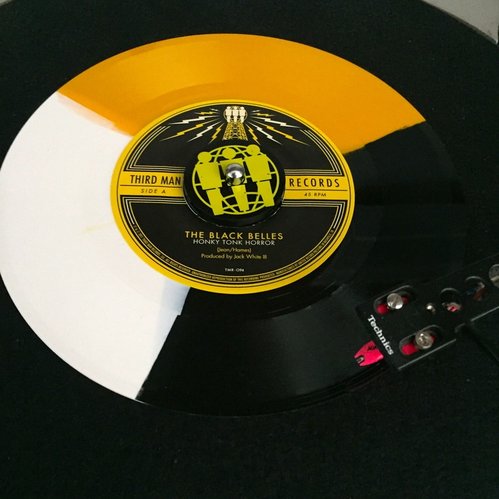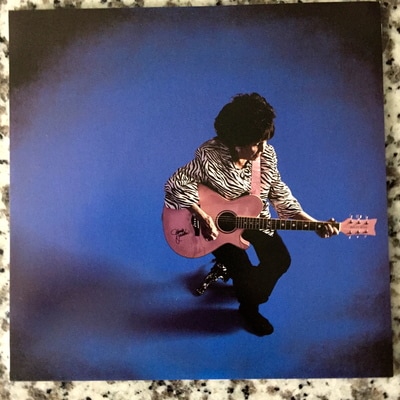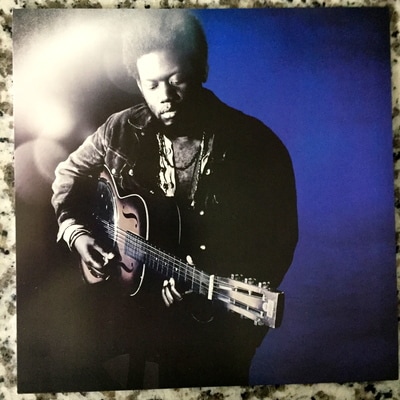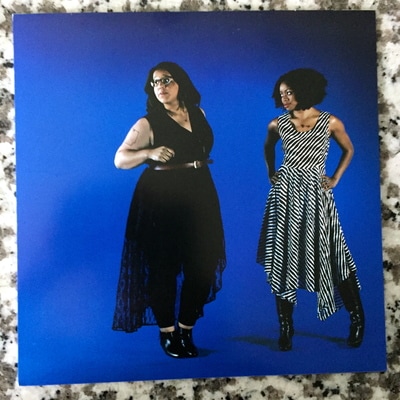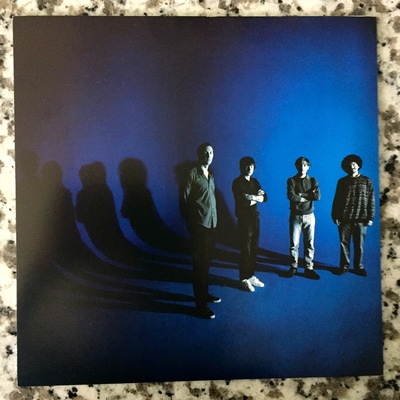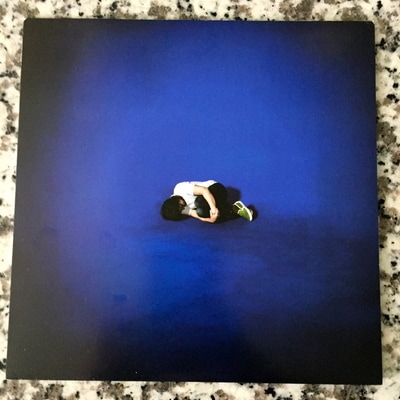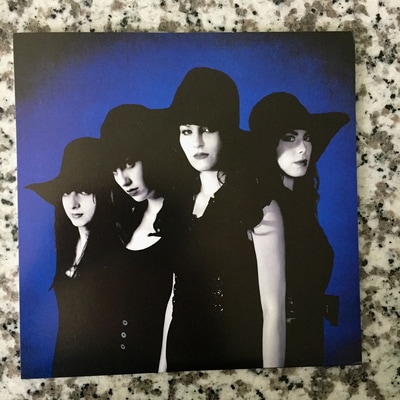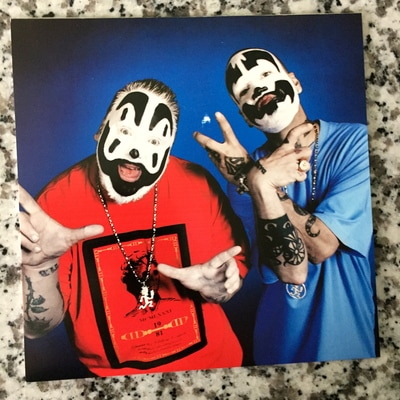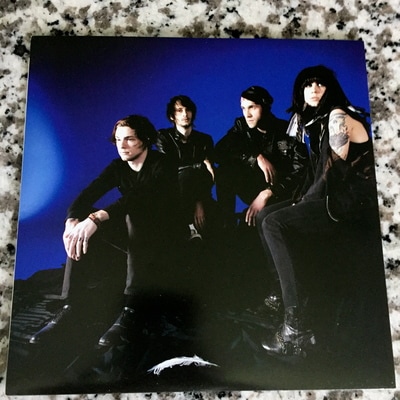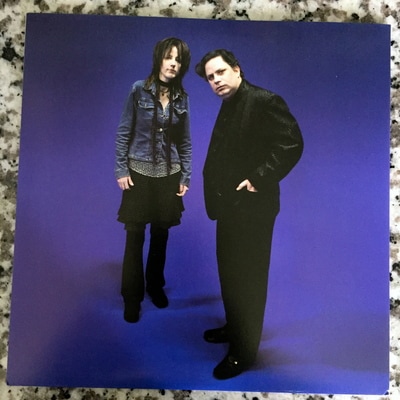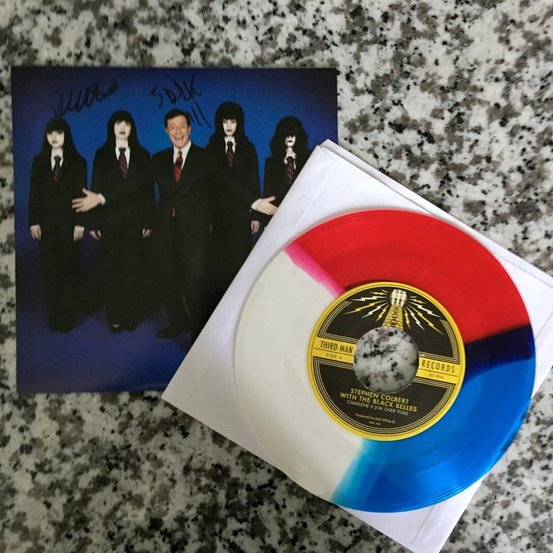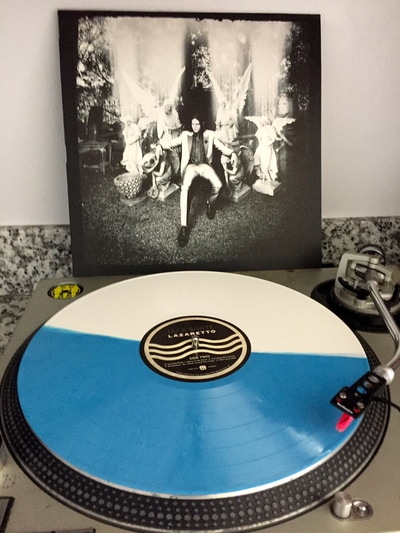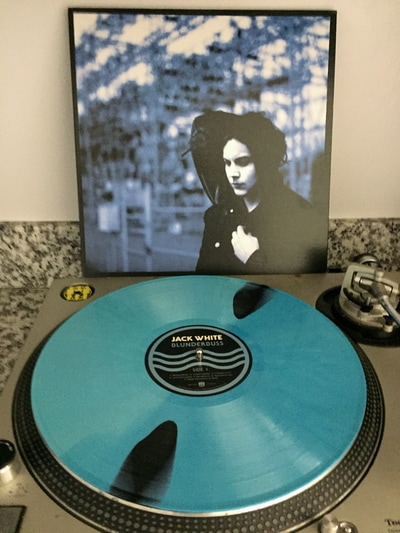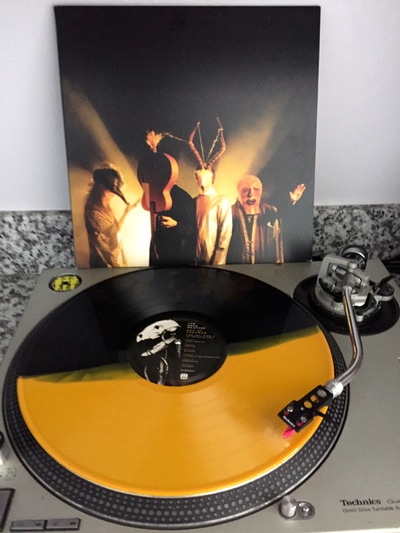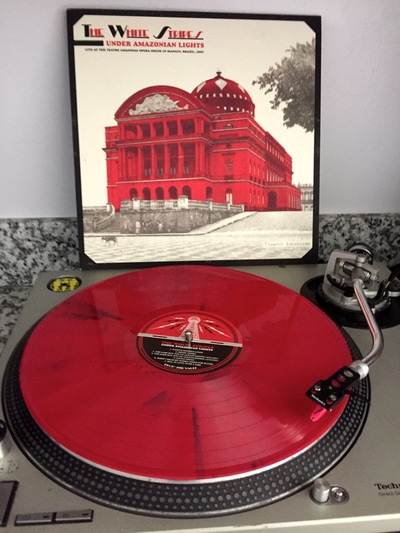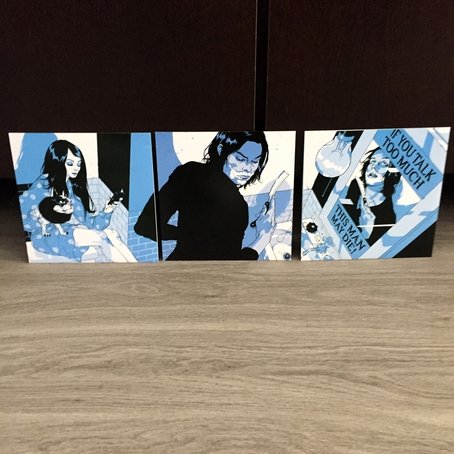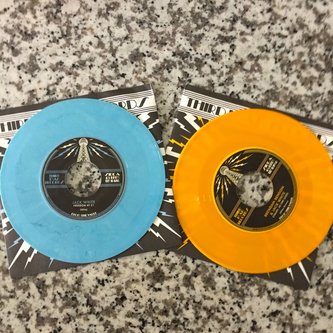How Third Man Records Won With Exclusivity
*One of the elusive Third Man Records tri-colors
Despite benefiting from the presence of the notable musician Jack White, his record label started out simple growing into big time success. Third Man Records was established in 2001, years before the vinyl revival caught on through the eyes of youths and hipsters.
Jack White, having three bands at the time (The White Stripes, The Raconteurs, and The Dead Weather) primarily released full-length albums related to those projects. However, the company had a product line called "The Blue Series" that gained additional interest. The concept was a series of seven-inch vinyl singles recorded and released by diverse musicians on a one-off basis.
Each of these releases came in a blue record sleeve with an eye-catching photograph of the performer on the front. As the series went on, these releases were not just diverse, but ranged from obscure to notable performers. There's Duane the Teenage Weirdo, whose songs sounded as though they were influenced by the original Nintendo system. There's Beck, who established himself in the nineties as a must for college radio circulation. Wanda Jackson, the iconic Rockabilly Queen not only had a Blue Series, but would also put forth a full-length album on the label . Then there’s the Insane Clown Posse, a completely different style of music with a rather unique following (Juggalos), who recorded a song reinterpreted by a lesser known Mozart piece titled "Leck mir den Arsch fein recht schön sauber." Did you know the actor John C. Reily performs folk music? He has two separate Blue Series collaborations. The 5.6.7.8.’s are a Japanese girl group signing in their native tongue.
*A diverse group of Blue Series releases: Wanda Jackson, Courtney Barnett, Michael Kiwanuka, Shovels & Rope, Brittany Howard & Ruby Amanfu, Frank Fairfield, the Dough Rollers, Lillie Mae Rische, Lanie Lane, First Aid Kit, Smoke Fairies, John & Tom, Becky & John, Seasick Steve, Tom Jones, Gibby Haynes, Dungen, The Black Belles, Drakkar Sauna, The 5.6.7.8.'s, Chris Thile & Michael Daves, Insane Clown Posse, Beck, The Thornbills, Laura Marling, Pokey LaFarge, Pujol, We Are Hex, Dex Romweber Duo, JEFF the Brotherhood, Black Milk, The Secret Sisters, Duane the Teenage Weirdo.
It's not the fact that these Blue Series are diverse, with some of them being flat out odd, that drove business though. It's the exclusive versions of each release that did. Each release had a limited amount of tri-color vinyl editions available in addition to the unlimited standard black vinyl for release. These tri-colors could be purchased for the regular price of $6 at events on the their release day. Some of these releases would be at the Third Man Records storefront in Nashville, where lines of people patiently waited to try and score one, while others were sold at pop-up events in the performers' home cities, or at various locations the Rolling Record Store stopped by. When you hear Rolling Record Store, think of a big yellow ice cream truck that sells records rather than ice cream.
Most of these tri-color records have been released with a limit between 100 and 300, but usually average out at 150 quantities. Normally, 50 of those are randomly inserted into online orders. Being one of the lucky 50 is incentive to order a new release right off the bat. Many Third Man consumers expressed disinterest in the Insane Clown Posse release, but were more willing to buy the product in hopes that its lack of popularity would increase their chances of receiving a tri-color. Those let down by previous orders showing up with the standard black version might adjust their ordering strategy, perhaps by pre-ordering the product without hearing what it sounds like, or maybe adding extra items to their shopping cart in hopes the record company will reward their loyalty. This habit by consumers helped boost the company's UPT (units per transaction).
Take any of these Blue Series releases, many of which with the average music listener having little to no previous knowledge of the performer, and release them only on unlimited standard black vinyl; the consumer may pick or choose what to buy. Make a big spectacle about the release with an event and a limited amount of special editions on tap, and consumers will go crazy. Especially if that consumer has a completest mentality. People want what they can't have. If somebody has a standard black version of the release and they know 150 other people have special ones, they'll naturally want a special one for themselves. On the flip side, 150 people know that there are tons of individuals out there that want what they have and might be willing to pay extra or make trades for it. In no time, an entire online community developed that dedicated itself to Third Man Records merchandise; not just for the records, but concert posters, t-shirts, and various knick-knacks.
Unfortunately, the more popular the company got, the more attention it received. Getting your hands on an exclusive Third Man Records release turned into a phenomenon. People began lining up at the release events with no intention of keeping the product. They'd bring family members and go home with as many of these six-dollar items as possible and go straight to eBay while the getting was hot. People will pay serious money for these releases. It's a fact that can be proven with a simple eBay search.
The demand may not be as high as it once was due to the growing frustration by both genuine collectors and the company itself. Fans found themselves paying inflated prices for the exclusive products, while the company had to sit there and watch third parties make profits off their product. The sickness of greed and profit by a few individuals seems to have ruined a fun thing.
*The Stephen Colbert Blue Series one-of-a-kind red, white, and blue edition from the Rolling Record Store.
Third Man Records seems to have drifted away from the Blue Series, with far less coming out than used to, and little or no information about the tri-colors made available. The frenzy has sort of cooled off, but hasn't been completely forgotten. The company still comes out with limited releases, but are finding ways not to dangle dollar signs in front of flippers, and hopes to get the records into the right hands.
It's not just tri-color records that have kept consumers intrigued. The company has been known to innovate new ways of catching the attention of the consumer. They've come out with an exclusive liquid-filled record, glow in the dark records, seven-inch records hidden inside of twelve-inch ones, among many other gimmicks. Anytime they can do something that hasn't been done before they drive up the intrigue of their product.
One of their most customer-friendly methods of delivering exclusivity to their fan-base is with their Vault Membership. The Vault Membership is something that anybody can sign up for. With four quarters in the year, subscribers sign up for one quarter at a time. They are charged sixty dollars but receive that quarter's package in addition to three months worth of online content and unique opportunities. Vault packages tend to include one twelve-inch record, one seven-inch record, and a third item that usually ends up being something like a DVD or t-shirt. Each and every item of the vault package is exclusive to that quarter as a one-time only deal. The content may include live albums or demos that aren't available elsewhere, or else special editions (such as split or tri-colors) of formerly released material only available on standard black vinyl. If you are signed up for the Vault and don't like the package for the upcoming quarter, you can simply unsubscribe with the option of signing up again in the future.
These exclusive Vault releases initially sold for big bucks on eBay as well, since a large portion of the Third Man collectors weren’t yet familiar with the Vault early on. Flippers tried to capitalize on this, but failed since they caught on to the exclusivity of Vault items around the same time average consumers did. An overflow of un-needed newer Vault packages began to sit unclaimed on eBay. There's no reason to buy Vault items off eBay when you can sign up yourself. With the 33rd Vault package currently open to signups, it's really just items from the first several releases that have value, as mostly everybody interested in a Vault package has signed up themselves for the latter releases.
*Examples of special edition albums only released through the Vault or Rolling Record Store
Every collector still seems to have their white whale. Something they missed out on early on and can’t seem to get their hands on for a decent price. Maybe it's that first Vault package for somebody that has been signed up for each one since, or maybe it’s somebody that only wants White Stripes related merchandise and didn’t sign up for a package because they only wanted the seven-inch single without having to pay for the rest of the package. It could even be one of the flexi-discs that were only released in a limited quantity by being tied to balloons.
Moving forward though, the Third Man Records Vault is recognizable enough that anybody who wants a package and is willing to spend the $60 will get it on their own, leaving profit for flippers at a minimum. Meanwhile, the company itself, continues to bring in all the money their product demands rather than watch it go elsewhere.
Third Man Records has grown to the point where now they have two store fronts (Nashville and Detroit), a concert room that has the capabilities of recording live shows straight to vinyl, and their very own vinyl printing press warehouse. Of course, only attendees of the live shows get the exclusive split-color versions of the recorded live shows. They’ve also begun re-releasing old records and singles, most notably a series of Sun Records releases with the likes of Johnny Cash, Roy Orbison, Elvis Presley, and Jerry Lee Lewis, among others. Their Document Records re-releases bring old Blues into the Third Man family, including Blind Willie McTell, Charley Patton, and the Mississippi Sheiks. Furthermore, Third Man Records has broadened their own lineup, signing bands for full length albums and additional singles, a further departure from the one-and-done Blue Series.
Third Man Records has grown significantly from the company's early days. Having exclusive editions of their early releases absolutely helped them bring in money and notoriety. Despite selling these limited edition releases at the same price as the standard prices, the consumer's hope to land something rare encouraged them to buy products they otherwise might not have, and in some cases, were willing to buy multiple versions of the same record. The eBay flippers set back the company’s marketing approach, but by then the company was no longer in a position to depend on that previous strategy to sell product. They have since found other ways to put exclusive merchandise into their consumers hands, most notably through the Vault, on tour, and other more fan-focused events. As a result they can now afford to produce records without the concern of putting each release through a strong marketing campaign, depending on it to sell.
* 7-inch Jack White singles with alternate sleeves only available on tour.
Third Man Records always had unusual and obscure releases, but for each one they really had to sell the idea of the product to their community and use the tri-color incentive, while provoking the “completist mentality” as a safety net. Now, with such a large catalogue, the bulk of their customers have abandoned the hope of being Third Man completists. Tri-colors are no longer the focus of the sales pitch. As a result, the company has a little more breathing room to focus on expanding the careers of their signees, allowing the lesser known performers to have a bigger role in the company’s over scheme. Instead of simply releasing a Blue Series single, the label can now take chances on offering performers full LP releases and focus more on sending performers on the road touring.
People will buy into the bands they promote, or they won't. Third Man Records is no longer in a position where they have to bank on their customers buying everything. Sure, it'd be nice, but they can afford for that not to happen. They've become a powerhouse of a record label, and can now look towards selling the performer rather than the gimmick of the release.
